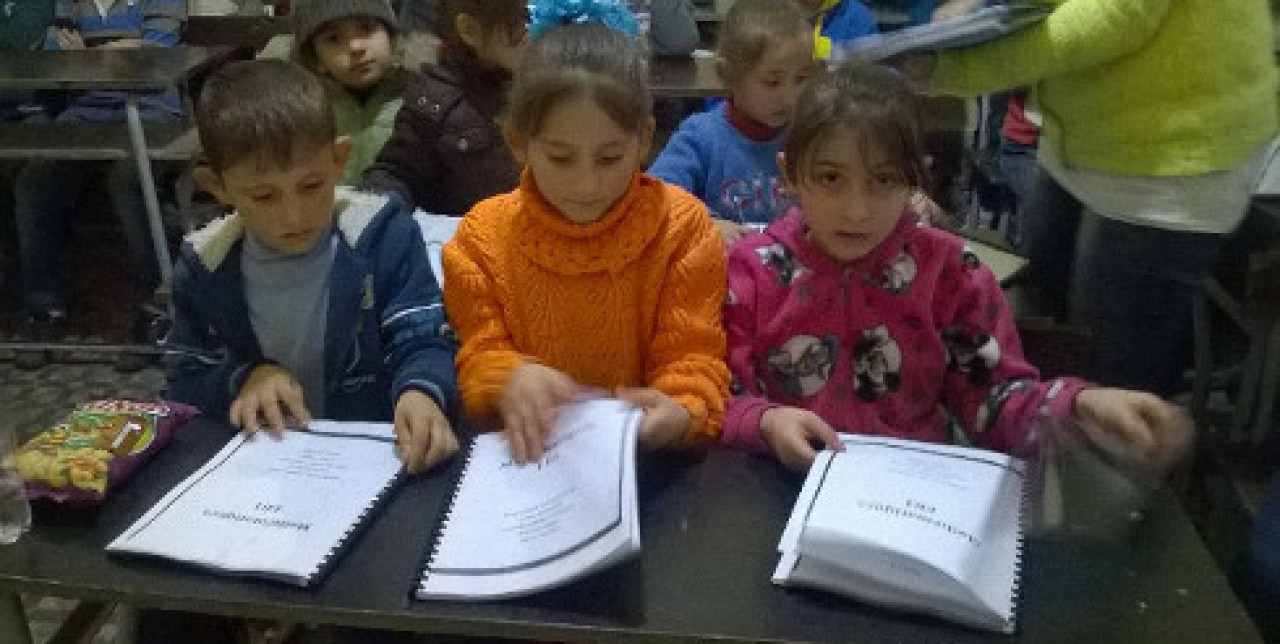08-02-2016 | di COOPI
Hooray for school!
Hope is also coming to Lebanon! Thanks to the action of COOPI, in collaboration with UNICEF, about 1,000 school-age children have been able to access the Basic Literacy Program in the communities of Tebbaneeh and Qoubbeh, two neighborhoods located in the city of Tripoli.
The area in which we operated, the north of Lebanon, has long been the destination of thousands of Syrian refugees fleeing the war and violence in their country of origin. The situation is extremely difficult: a large number of people (in need of care, housing, basic necessities) have poured into the area. Many Syrian refugee children do not have access to schools, which are often very expensive and require large transport costs to be reached; in addition, they face great difficulties in language and socialization.
The language difficulties are due to the fact that the educational system in Lebanon provides for the study of French as a second language, while in Syria the second language is English (obviously no problem with Arabic, the official language of both countries). From a social point of view, the arrival of such a high number of refugees has put a strain on the public provision of basic social services, including education. Living conditions have deteriorated rapidly: the area of Tripoli is already poor and politically unstable in itself, and the massive presence of refugees has undermined the initial spirit of welcoming the local population, making integration very difficult.
The programme began in September 2014 and will end at the end of March 2015; the beneficiaries are Syrian and Lebanese children who have often been unable to attend school for 3 or 4 years because of the conflict. We want to guarantee them a place where they can play, learn and live a carefree childhood. Moreover, if children attend school, they are less likely to be exposed to exploitation.
Thanks to the help of 4 schools in the areas of Tebammeh and Qoubbeh we were able to involve about 1,000 students and 50 teachers, who organized lessons in French, Arabic, Mathematics, and recreational activities. We also provided the children, selected after careful study according to their educational needs, with the school materials they needed. Of course, we attached great importance to the school integration of the girls, who were facing the greatest difficulties; the mobilisation of the families was fundamental, and they understood the importance of the school as a tool to break down linguistic and cultural barriers.
As Layla Chalhoub, project leader assistant, tells us, COOPI had to face many challenges, but we did not lose heart: "Due to institutional difficulties, we could not work with public schools and we had to rely exclusively on private institutions. In addition, many families were about to give up the project because they could not afford to cover the transport costs for their children. We have overcome this difficulty thanks to the help of a local bus driver, who has organized a very low-cost transport service.
The final objective of the project is to ensure that these children, who have been severely affected by the Syrian crisis, can be reintegrated into real schools as soon as possible. In parallel with the children, we also addressed adults, teachers and parents (about 400), making them aware of the importance that the school can have in the integration of these children.
We leave you with the testimony of Dania Al Hassan, teacher supervisor, who tells us about the impact the programme has had on these children: "The children come from very poor families, who often live in isolation and cannot afford to buy school supplies or food. Thanks to the help of COOPI and UNICEF, the situation has much improved: now the children have notebooks, cases, books and even fruit juices and croissants for snacks! Thank you very much for what you have done and continue to do!
(thank you Gabriele Di Padova for your collaboration)




 Lebanon
Lebanon